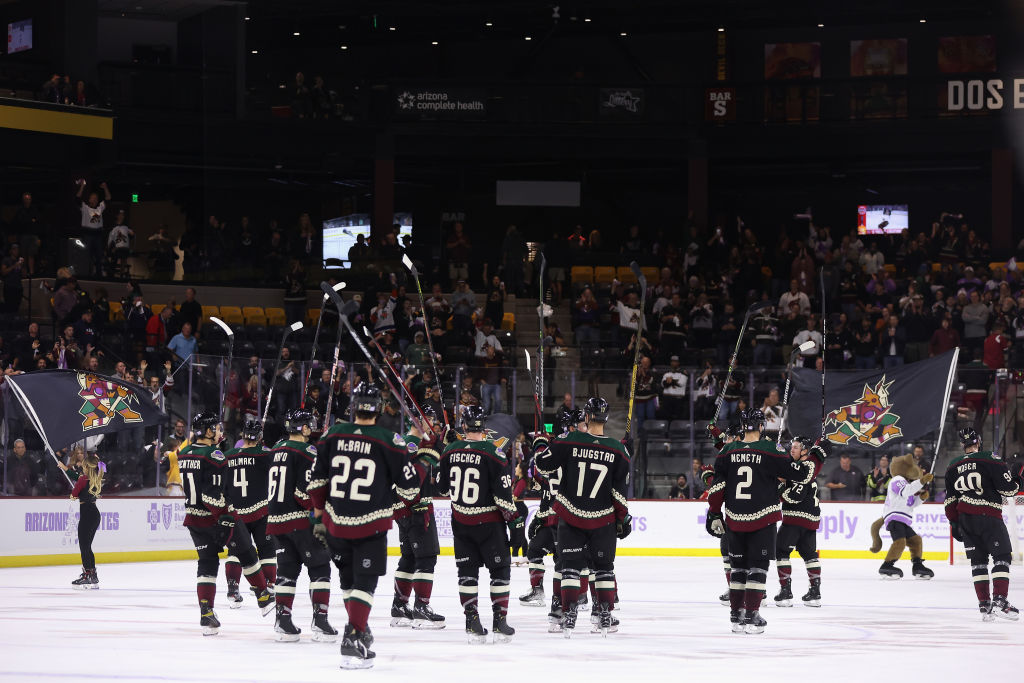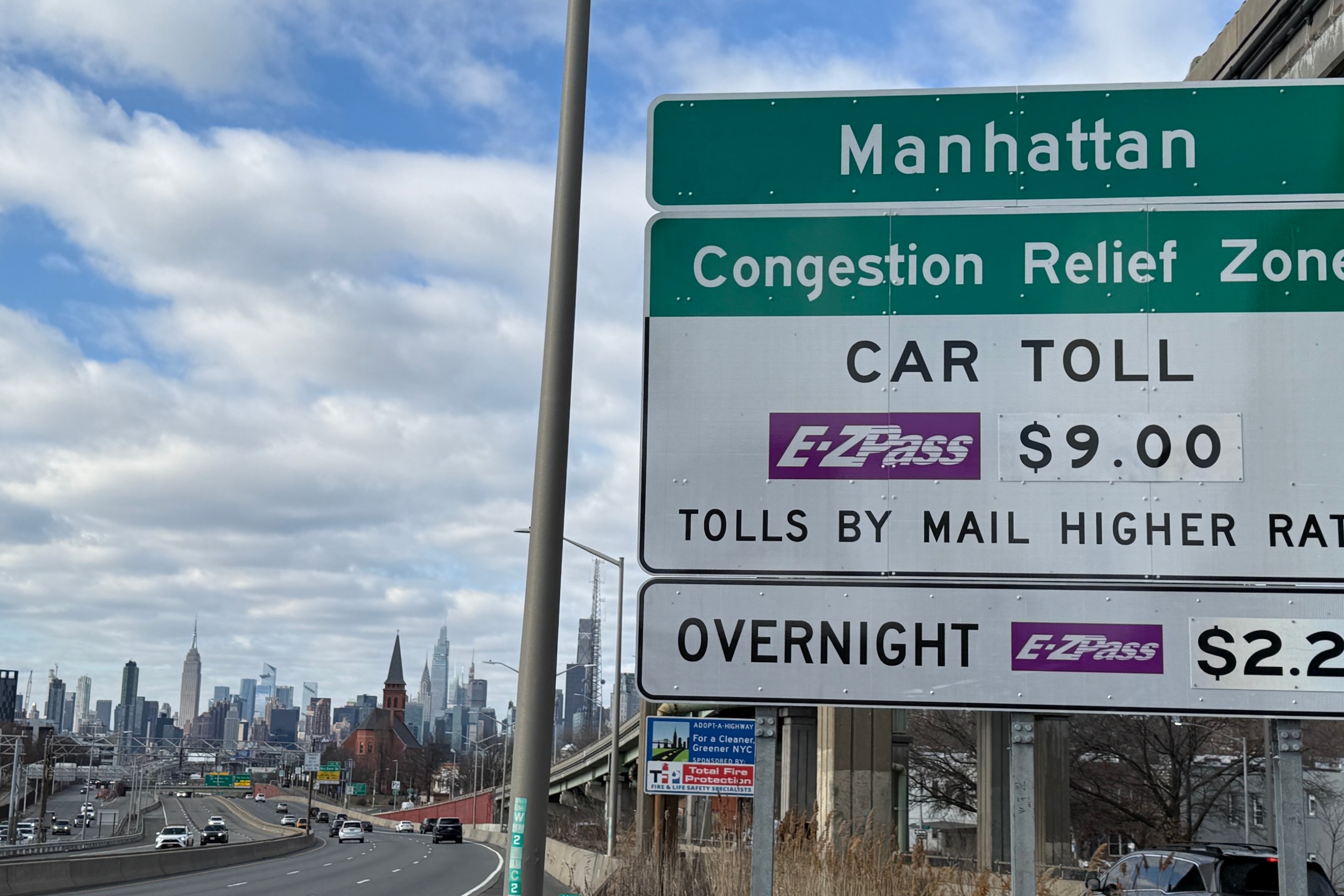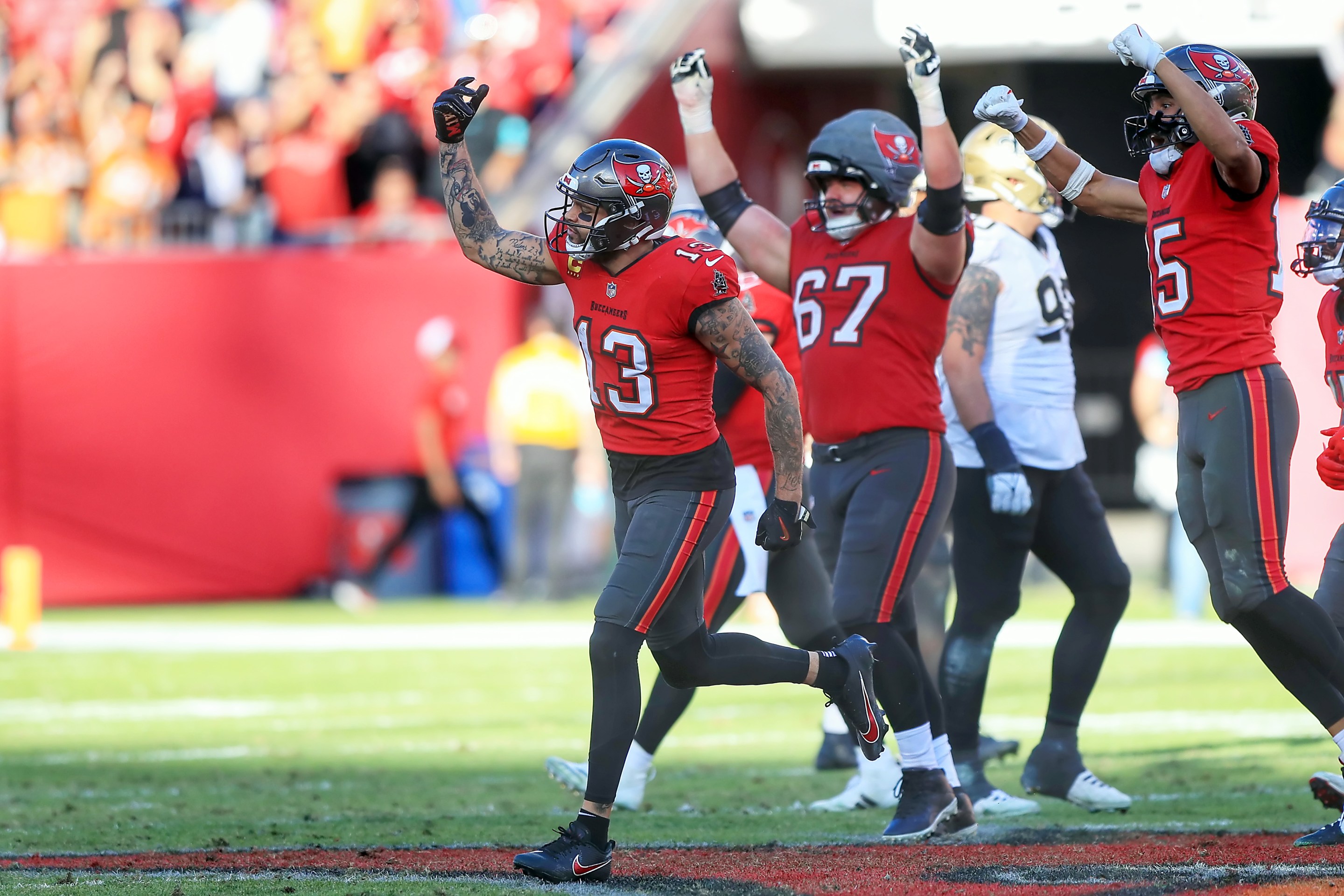The Arizona Coyotes' first few games at Mullett Arena have been disappointingly mundane, at least to a TV viewer. The tiny space that the team has been forced to share with Arizona State University since being kicked out of their last arena in Glendale is subpar for an NHL team in many ways, including the necessity of a locker room annex, the fact that ASU gets first dibs on scheduling, and, oh yes, a capacity of 4,600 that's less than a third of what the next-smallest team can handle. (Ironically, that team is in Winnipeg, the city scorned by this franchise to kickstart its Southwestern hockey experiment.) But at ice level, as captured by the cameras, a game on ASU's campus doesn't actually feel all that different from a game in San Jose, or Anaheim, or any other place where a bad team toils in front of an underwhelming audience. Mullett is missing its upper half, basically, but it's still a regulation rink with seats around it. If you didn't know, it would take some time to spot its deficiencies.
The problem with Mullett, really, is not that it's some backwoods shack unfit for the honor and privilege of hosting National Hockey League games. The issue is that this obviously stopgap solution has been forced to be so much more than just a couch the Coyotes crash on for a few months. The franchise is committed to be here for three years, with an option for a fourth, because they still don't know where they're going next. Long after the novelty has worn off, and curious visitors have tired of the team's especially lethargic style of play, the Yotes will still be stuck in a home where they can actually meet the gaze of every single Midwestern retiree in attendance. That the franchise has backed itself into such a long-term disadvantage is a testament to both decades of mismanagement and the league's stubborn insistence that hockey continue to be played in a boiling hot monument to man's arrogance.
But for those worried about the feelings of billionaire owner Alex Meruelo, who took over the team in 2019, there is a dim light at the end of a long tunnel. The Coyotes are determined to gut out these college years and eventually end up in a gleaming new building that will be part of a proposed "Tempe Entertainment District." Currently a landfill with 1.5 million tons of trash, Meruelo and his allies have pushed for a $2.1 billion development that would replace it with the team's 4,787 pounds of trash, plus a theater, some homes, and a couple of hotels. Gary Bettman is so excited about the proposal that he has promised to bring an All-Star Game or a draft to Tempe if it goes through. Wow!
This idea cleared a very low hurdle on Tuesday night, when the Tempe City Council unanimously approved it, but what happens next will be very, very interesting. The Coyotes will now gather signatures from Tempe residents to get the proposal on the ballot for a local referendum set for May 16. If the voters approve, the team will breathe of sigh of relief, feeling like their ASU detour was a worthwhile sacrifice. But if they don't ... well, the summers in Quebec are a lot nicer, anyway.
The history of stadium funding in Arizona is thorny, to say the least. The public cost of the Diamondbacks' ballpark caused a massive uproar, as the Maricopa County Board of Supervisors approved a sales tax increase in 1994 while circumventing the will of the county's residents, two-thirds of whom opposed it; a man convicted of attempted murder for shooting County Supervisor Mary Rose Wilcox as she left a meeting in 1997 cited the tax as his motive. Around that same time, the Cardinals' attempt to get out of ASU's football stadium with a sales tax increase in 1999 failed decisively, and a back-up plan to fund a new stadium with hotel and car rental taxes barely squeaked through the following year. The Great Recession helped lead to some serious headaches with this method of funding, and Phoenix's former mayor later talked up how proud he was that his city used what could have been football land for what became the Phoenix Biomedical Campus.
Proponents of the new Coyotes project argue that the public burden in this case is much smaller than the worst of the stadium boondoggles. Here, the literal money being spent is about $200 million to take the trash that's there and put it somewhere else, which, as the team is quick to note, the city would have to do anyway if it wanted to use that land for any kind of new development. As friend of the site Neil deMause points out over at Field of Schemes, however, some back-of-the-envelope math puts the tax subsidies around $500 million, not including the opportunity cost of whatever could be done with that site instead. Add that massive tax break for Meruelo, plus the oft-unfulfilled promises of these arena "entertainment districts," plus the general apathy for the Coyotes, plus additional opposition to the proposed residencies from Phoenix Sky Harbor Airport because of flight path concerns, and voters will have a much more complicated choice than the Coyotes want them to believe.
That the public money being spent here is something far less tangible to the average person than a sales tax increase certainly works in the team's favor, and Meruelo's deep pockets will no doubt allow him to continually and loudly push the most idyllic dreams of this "landfill to landmark" endeavor on the voters of Tempe. But this May 16 referendum is still a real risk for the Coyotes, and by extension the NHL. After 26 seasons of hockey in and around Phoenix, a subset of this franchise's fans, enemies, and neighbors will essentially be forced to answer, in yes or no form, the question "Do you care about the Coyotes? Like, really care?"





